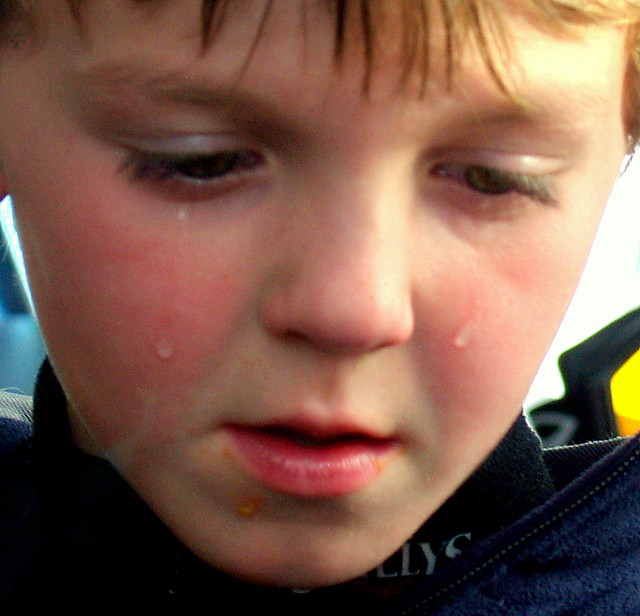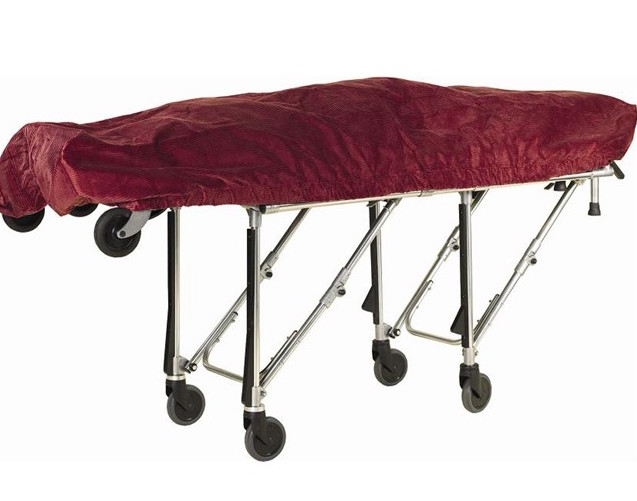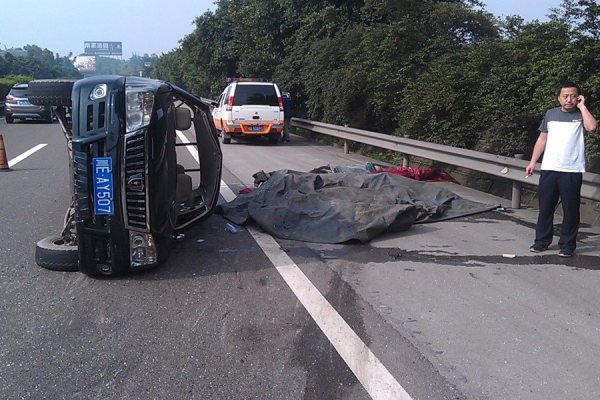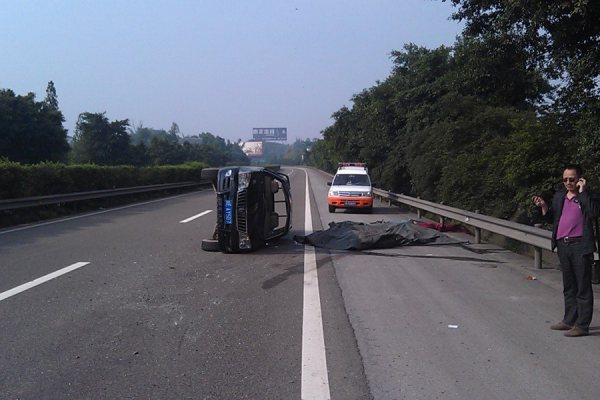Caleb Wilde
(218 comments, 980 posts)
Posts by Caleb Wilde
A Death Positive Novel for Children (and Adults)
Full disclosure: This is a book review of The Day the Angels Fell. The author, Shawn Smucker, is my good friend. We’ve shared a number of early morning breakfasts and a couple kayaking trips. Shawn is a better person than I am. He’s kinder and more courageous than I’ll ever be. But that’s not entirely why I’m reviewing (and yes, promoting) Shawn’s book. I read Shawn’s book and I’m promoting it because I’m genuinely interested in its subject matter and I value its death message.
The Day the Angels Fell is a novel that explores an alternative narrative about death … a narrative that we rarely think about in America.
The common narrative that we’ve been told is that death is THE enemy. That death is so horrible we should do everything we can to shield ourselves (and especially our children) from its specter. That our mortality should be hidden away so that the rest of us don’t have to think about it.
The Day the Angels Fell explores the idea that death can be a gift. And not only does it explore that alternative narrative, but it does so with the intended audience being children (middle school on up to adult).
On some levels, The Day the Angels Fell compares with C.S. Lewis’ popular The Lion, the Witch and the Wardrobe. That book – more so than the other Narnia tales – provides a way to help children understand and tackle big ideas like betrayal, sacrifice and forgiveness. The Day the Angels Fell tackles the big idea of death through a fantasy narrative that’s intended for children, but – like The Lion, the Witch and the Wardrobe – still resonates with adults.
The story revolves around twelve year old Sam and his friend Abra. After Sam loses his mother, he and Abra set out on a quest to bring her back. As he pursues a source of resurrection for his mother, he has to ponder the moral question: “If I find a way to bring her back, should I do it?”
It’s hard to talk to our children about death (hell, it’s hard to talk to adults about death). It’s even harder to do so without using flowery euphemisms and warm fuzzy answers. Perhaps the best way to do it is through a really good story. Shawn’s a storyteller (he’s written well over five books), and in this story, he finds a way to tell an alternative narrative about death for children and adults that isn’t wrapped in overused clichés.
*****
Right now Shawn dropped the Kindle edition price to $3.99 just for our Confessions of a Funeral Director community. It’s well worth the price of the purchase and the time to read it. You can find the paperback version HERE.
Trying to Make Sense of a Tragic Death

© 2009 David Shankbone, Flickr | CC-BY | via Wylio
(As per all my posts, details of this story have been changed to respect the privacy of those involved.)
I picked up the phone with my rehearsed, “Hello. This is the Wilde Funeral Home. Caleb speaking.” The voice on the other end says abruptly, “I have a problem … my son-in-law was killed in a motorcycle accident yesterday.”
Now that I know the nature of her call, the next five or six sentences are as rehearsed as the first.
“I’m so sorry for your loss.”
“Thank you” she says.
I pause … waiting to see if the silence elicits any farther response; and, at the same time I’m contemplating if I should deviate from the script and ask her about details of the death.
Keeping with the script, I continue on, inquiring about the hospital he’s at, the name of her daughter, her daughter’s phone number and then the hardest question of them all:
“Do you know if you want embalming or cremation?” I say with hesitation.
And what proceeded was her only scripted response.
“It depends on the condition of his body. The coroner told us he slammed into a tree without his helmet on, but they wouldn’t tell us anymore. If he’s bad … cremation. If he’s okay … embalming.”
We went over the plan of action, which consists of me calling the hospital to see if her son-in-law’s released, calling the coroner to inquire about the condition of the body and then calling her back to let her know a time she could come in to the funeral home and make arrangements.
I called the coroner’s office.
Got the release from the hospital.
And an hour later I was standing in the morgue unzipping the body bag to see if the body of this 40 year old man was viewable. It was the back of the head that hit the tree … something we could fix for his wife and four young children (ages 5 to 13), so they could see their husband and daddy one last time.
15 hours of restoration. He still didn’t look right. Dead people never look right. We’re so used to seeing them alive that dead is never accurate … but this was different. This was a motorcycle accident that threw a man into a tree.
We gave the wife the choice to continue on with the public viewing or close the lid and she chose to keep it open, sharing the reality and source of her pain in all its distortion … sharing it even with her four young children and all their schoolmates that came out in support, many of whom saw unperfected death for the very first time.
The scheduled end of the viewing came and went but people kept coming to view.
Finally the last person filed past the casket and the family knew the time to say their last good-bye had approached.
The viewing was held in a church, with the casket positioned at the front of a totally full sanctuary. As a way to provide privacy to the family, we turned the open casket around so that the lid blocked the view from the pews … creating a private space where tears could be shed in all their honest shock.
The sanctuary echoed with the cries of four children and their mother.
And the sanctuary echoed with the cries of four weeping children and their mother … making time stand silent.
The grandfather came up to the casket, wrapped his arms around the children and said, “This is hard for you to understand.” The tear soaked porcelain skin cheeks. The last look of their father’s physical body save the memories their young minds have stored.
In those moments as the sanctuary resounded with the cries produced by an inexplicable death, there wasn’t a person in the room who understood.
Yet all tried to understand. All grasped for an explanation.
In these moments — as we watched these young children — we all became like them. With all the well intended cliches emptied of meaning, we allowed our minds to reconcile with what our hearts were telling us: we simply can’t understand something that doesn’t make sense.
A Beeping Day in the Funeral Business
It was late summer. I had worked a 70 hour week, capped off with a Saturday funeral that lasted (viewing to burial) 7 hours (most last 3 hours).
I got home at five, settled in by watching Penn State football and then my cell phone rang.
“Caleb,” it was my grandfather’s voice, “we have a call at Such and Such Nursing Home.”
I grabbed my suit, put it back on, drove to the funeral home, loaded the collapsible stretcher into the hearse and off I went to Such and Such.
I’m tired.
Bleeping grumpy.
I pull up to the front door of the nursing home. A new nurse greets me and tells me she doesn’t want me “dragging the body through her wing.”
Too tired to persuade her with a smile, I jump back into the hearse, drive around to the other wing, and as I pull up there’s a younger man wearing a Phillies shirt, maybe a little older than me sitting in his electric wheel chair. As I get out, I try to cut the I’m-a-funeral-director-here-to-pick-up-a-dead-person awkwardness by striking up a conversation. I can tell rather quickly that he’s not a visitor. He – the not so older than me person of the wheel chair – is a patient.
His speech is slurred and slowed, but his mind’s still working as he jokes with me about the choking Phillies. And as we converse, I try to open the door to the nursing home but it’s locked, which kinda upsets me cause as I peer through the door I notice there’s no one around. No one.
The anger that starts rushing through my arteries is slowly abated by a “I dot da toad for da door.” He gives me the passcode and I give him a “See ya later” as I expect him to be gone when I come back.
But 45 minutes later he’s still there.
Sitting.
Alone. He’s a little older than me.
I open the door and park the collapsible stretcher on the porch as I open the door on the hearse and he says, “So, you dedided to go intu da bisiness, Caleb?”
A question with an obvious answer, but it wasn’t meant to be answered … it was meant for awareness.
There was only one person I knew who was wheelchair bound that was my age.
In college one of my friends got drunk with one of his buddies, drove his old minivan, wrecked it, but not before throwing his buddy/passanger out of the vehicle, paralyzing this guy and causing damage to his speech capacity.
“Eddie,” I said. “I remember you.” Which was the answer he was looking for.
And then I continued with some bitching and moaning about working 80 hours this past week, which comes so naturally at times that I was able to hold my own private conversation inside my head, thinking, “How ungrateful am I complaining about working when this guy sits all day, mostly paralyzed.”
I can sometimes do two things at once. Rarely can I do three.
But here I tried: I was talking to him, trying to think about what his life’s like and then, for honor’s sake, I started to load the body into the hearse. And it wouldn’t go.
The collapsible stretcher wouldn’t collapse.
I tried to put the body laden stretcher into the hearse once, twice and on the third time I pushed extra hard and … BEEP, BEEP, BEEP, BEEP, BEEP ….
Somehow when I had pushed the third time I must have squeezed the panic button on the keyless entry device in my hand and had begun to ruin the quit peace of the Such and Such Nursing Home.
It was so loud!
I hit the panic button again thinking that would stop it. Nope. Tried the “unlock” button. Nope. And it was here I tried the fourth time to get the stretcher into the van to no avail. Dilemma. I thought, “If I start the car, it will probably stop … but if I start the car, I have to leave the stretcher hanging out the back of the hearse.” But I had no choice.
We were sitting on the top of a hill and the worst case scenario was running through my head … a scenario that – if it had happened – I wouldn’t be telling it here, on my blog. But the fear of losing a stretcher down a forty foot hill with a decent sloop scared me enough to try and secure it. I then ran to the driver seat, turned the key … nope.
So I quickly get out and go back to attending the stretcher all the while expecting a nurse or supervisor to come out and rip into me.
For some reason I hit the panic button again and while the alarm goes off, in place of it I hear this loud, almost barking kind of a noise coming from the wheelchair: “Arf! Arf! Arf!”
Eddie’s barely able to suck in air as he lets out his massive belly laughs one loud yelp at a time. He finally gets his breath, I finally get the body in the hearse and he starts yelling, “I wish (gasps for air) I tad a camera (sucks in another deep breath) I’d put dat on (deeeeep breath) dootube!”
I had made his day … maybe his week.
The beeping crescendo of my awful week was the laughing pinnacle of his.
And his laughter somehow made all the problems of my week fade away.
Worshiping God through Our Sorrow
My blog is read by people of all religions and none. I love that! And I continue to look for guest bloggers who are willing to share how their religion (or lack of) influences their understanding of death.
I come from the Christian tradition. I actually hold a Masters Degree in Christian theology. This post, while specifically situated in the Christian tradition, has some value for those who hold some view of God, Christian or not. Many of us have a view of God that’s unfeeling and impersonal. That perspective of God can often directly affect how we allow ourselves to grieve and how we view death. Here’s how:
*****

Van Gogh’s “Old Man in Sorrow.” It’s interesting that the posture of sorrow is similar to a posture of worship.
Few religious people are familiar with the term “orthopathos.”
We’re familiar with orthodoxy, which is “thinking like God”. And many of us hope to be “orthodox.”
Some of us have heard of the term orthopraxy, which is “acting like God”.
But orthopathos, which means “feeling the feelings of God” is an idea that few of us are familiar with because so few of us believe that God actually feels.
*****
It’s said that we become like the object/person we worship. And when you worship God, you become like who or what you think He is.
Do you worship God as patient?
Do you worship God as just?
Do you worship God as love?
You will eventually become all these things if you believe they are apart of God’s character.
What happens when you see God as immutable … as unchangeable?
What happens when you see God as impassible … as emotionless?
So many Christian and religious traditions believe that God is utterly unable to change and utterly unaffected by emotion. Should it be a surprise that so many of us become unmoved and emotionally repressed?
So, when we say “orthopathos” most Christians think that the “proper way to feel like God” is to feel nothing at all. To never grieve, to never have joy, to never get angry … because the One they worship, the One they are trying to reflect has no emotion Himself.
******
The ultimate example of orthopathos is found on the cross. The prophet Isaiah, in what is perhaps one of the more powerful prophetic utterances of the Old Testament writes,
“He was despised and rejected by mankind,
a man of suffering,
and familiar with pain. …
Surely he took up our pain
and bore our suffering, yet we considered him punished by God,
stricken by him, and afflicted.
But he was pierced for our transgressions,
he was crushed for our iniquities ….
This laying on of the iniquity, bearing of our suffering, this taking of our pain, this familiarity with pain, this man of suffering who took so much of the world’s grief into his heart that it’s recorded in Mark 13:34:
“”My soul is overwhelmed with sorrow to the point of death”.
Overwhelmed with sorrow to the point of death.
This wasn’t Jesus being punished by the God per se, but Jesus taking the heart of the God in human form by seeing what God sees, acting as God would act and ultimately feeling like God feels. It was the ultimate act of representing God in human form!
And then, I believe, Jesus died, not from the wounds of the cross, but from the wounds of the heart.
Sure, we can begin to understand right thinking, we can begin to understand right action, but who can feel the heart of God and live?
*****
Why don’t Christians feel sorrow? There’s a couple reasons: 1.) our theology doesn’t allow for it and so 2.), we think it’s unlike our God if we do so.
Wendell Berry’s famed literature character “Jayber Crow” states this:
I prayed to know in my heart His love for the world, and this was my most prideful, foolish, and dangerous prayer. It was my step into the abyss. As soon as I prayed it, I knew that I would die. I knew the old wrong and the death that lay in the world. Just a good man would not coerce the love of his wife, God does not coerce the love of His human creatures, not for Himself or for the world or for one another. To allow that love to exist fully and freely, He must allow it not to exist at all. His love is suffering. It is our freedom and His sorrow. …. And yet all the good I know is in this, that a man might so love this world that it would break his heart.
Some of us will feel God’s missional love for the world, but all of us will feel the sorrow of death. And it’s time that believers believe it’s okay to sorrow. It’s time we believe it’s okay to weep, for when we do so we aren’t becoming unlike our God; we are, in fact, worshiping.
That time a one car accident spilled 10 dead bodies onto the highway
Last year a gurney with a deceased person on it fell out of a coroner’s vehicle and ended up on the busy Street Road in Bucks County, Pennsylvania.
At the time, I proclaimed this “the worst”. And, the nightmare of all nightmares. Well, it looks like I was wrong. It looks like a single dead body in the middle of the road is not “the worst”.
Via China Smack:
A little after 8am … 7km away from Luzhou toll station, the right rear tire of a dark green pickup truck blew out, causing the pickup truck to roll over onto its side. Over 10 bodies lay on the road, all wrapped in plastic bags. When the incident took place, many drivers and citizens passed by the scene, and upon witnessing those bodies on the road, they misinterpreted it to be some serious incident. Especially on the Internet, this incident was in uproar, causing some citizens be in panic. This picture [above] is of June 2nd, at the scene of the incident.
Huaxi Metropolis Readers reporter called a person in charge at Luzhou Medical College. This person in charge confirmed that the 16 bodies that appeared in the incident were indeed purchased by them from Sichuan University Huaxi Campus through regular channels, which were to be primarily used for school teaching.
So, 10 bodies spilled onto a highway is clearly the worst thing ever.
Also, you can purchase a body “through regular channels” in China? Can you have bodies shipped from China to … say … Parkesburg, Pennsylvania? I’m asking for a friend.






